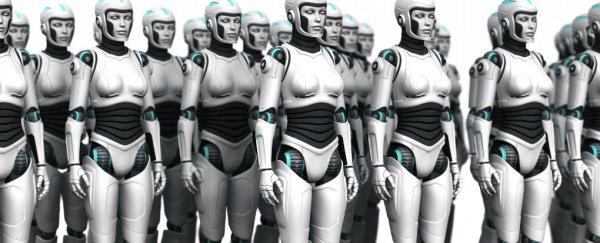The idea of getting gangs of robots to do our dirty work and daily drudgery sounds appealing, until you consider the impact on the people who are doing those jobs already - will they be able to find work somewhere else? It's not a new dilemma (the same question has been asked since the Industrial Revolution and beyond) but the rise of super-smart AI-driven robots has brought it into sharper focus in recent years.
The BBC, together with researchers from the University of Oxford and Deloitte, has put together a comprehensive list of the jobs that are most (and least) at risk. If you're a telephone salesperson you might want to start polishing up your CV - the study says there's a 99 percent chance your job will go to a robot in the next 20 years. The other professions in the top five are typist or related keyboard worker (98.5 percent); legal secretary (97.6 percent); financial accounts manager (97.6 percent); and weigher, grader, or sorter (also 97.6 percent).
The jobs at the lowest risk from automated machines are hotel and accommodation manager or owner (0.4 percent); publican or manager of licensed premises (0.4 percent); education adviser and school inspector (0.4 percent); speech and language therapist (0.5 percent); and social services manager or director (0.7 percent). If any of those apply to you, you're probably safe - though your children might not be.
The BBC has put together an interactive chart that lets you search for your current occupation and see what the estimated risks are. "Certain aspects of a job are simpler to automate than others," explains the guide. "Social workers, nurses, therapists, and psychologists are among the least likely occupations to be taken over as assisting and caring for others, which involves empathy, is a crucial part of the job."
"Roles requiring employees to think on their feet and come up with creative and original ideas, for example artists, designers or engineers, hold a significant advantage in the face of automation," the BBC adds.
These are tasks robots and AI software tend to struggle with, whereas they're very good at processing data and following detailed instructions to the letter over and over again. If you feel like a mindless robot at your current job, then chances are you're at risk of being replaced by one.
But the robot and software developers would say they're building a better future for all of us, and the evidence backs that up: improved technology and robotics have created more jobs than they've taken away in recent years, freeing us human beings up to explore more enjoyable careers and to spend more time on leisure activities.
